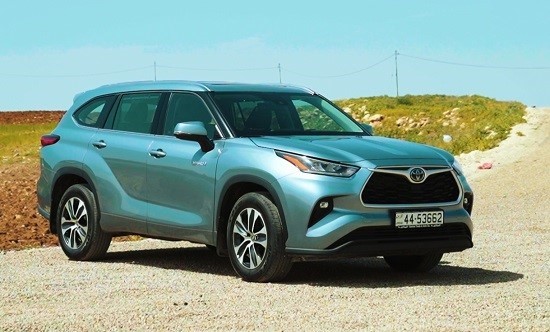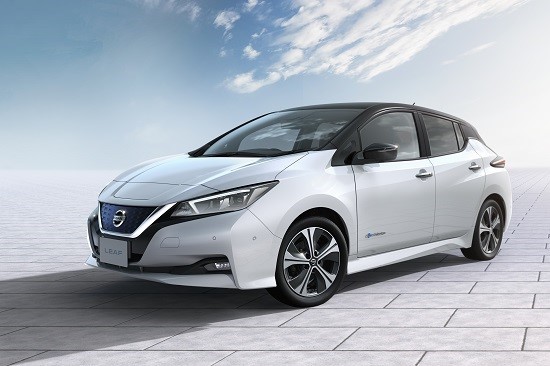Jordanians like
hybrids, that is almost common knowledge. The latest new car registration
statistics confirm this statement and show a growing trend among Jordanian consumers
to replace conventional fuel-powered cars, known as internal combustion engines
(ICE), with cars that enjoy hybrid technology. This is evident in the number of
new hybrid cars that has been registered in Jordan, according to the
Zarqa Free Zone and Amman customs registration statistics.
اضافة اعلان
By the end of
December, annual hybrid cars registration reached around 10,000 units, which
accounts for 5 percent of total new cars registrations, whereas cars with
conventional fuel or ICE cars scored approximately 8,000 thousand units or 43
percent; full electric cars, otherwise known as battery electric vehicles (BEV),
reached around 1,000 units, approximately 8 percent of total cars registered in
Jordan in 2021. The total number of imported new cars reached 18,500 units.
The vehicle
registration statistics showed relative stability in the total market volume
and confirm the fact that used car imports still hold the largest slice of the
total car market imports; imported used cars total reached around 51,500 units,
with is approximately 70 percent of total imports, while new cars made up less
than 30 percent of the total cars registration figure, which stood at 77,000 in
2021.
The secret of
the popularity of hybrid cars in the Jordanian market could be ascribed to the
tax regime; it is an option given by the government to citizens as an
alternative to the extreme taxation of ICE cars. The large difference in
customs duties makes potential buyers favor hybrid cars, for which they would
have to pay less than half what they pay for similar cars equipped with normal
engines.
That was the
case until the end of 2021, but the choice may change due to the government
decision to hike the importation tax on hybrids four times in four years;
customs reached 10 percent by the end of 2021, and the tax is levied under the
pretext of ending all exceptions and exemptions to the tax law.
 Toyota Highlander Hybrid. (Photos: Mohammad Zaro/Jordan News)
Toyota Highlander Hybrid. (Photos: Mohammad Zaro/Jordan News)
The recent increase
in the hybrid cars customs may have, as previous experience in the Jordanian
market showed, adverse effects on the appetite for hybrids of Jordanian
consumers, and may cause market stagnation, which will lead to a decrease in
the car tax revenues, which is the exact opposite of what the government wants
or intended by increasing the tax levied on hybrids.
Jordanian
consumers behave as expected in times of change: they wait and see, and stop
buying, which means that demand will slow down if not totally reach a
standstill. This was the case when the government decided increase revenues by
hiking car importation taxes, which eventually led to decreased revenues due to
a decrease in sales. Then, what happens might be a late reversal of the tax decision.
The market is
used to uncertainty and continued change of heart by the regulator, which makes
planning ahead or any strategic approach in the automotive business environment
useless.
If the price of
hybrid cars is higher than buyers’ budgets, they may choose to buy either used
cars or ICE cars. A shift from hybrid toward BEV seems unlikely for the time
being, due to the resistance to change of most consumers, but also for other
compelling reasons, like worry about these car’s autonomy range and the lack of
proper infrastructure, meaning of charging stations.
 Nissan Leaf EV. (Photos: Mohammad Zaro/Jordan News)
Nissan Leaf EV. (Photos: Mohammad Zaro/Jordan News)
An environment-friendly
tax policy is a global priority, and favoring hybrid or electric vehicles over ICE
cars is not a luxury decision, but one based on reasons like fuel consumption,
which achieves clear savings to the country’s oil importation bill, one of the main
burdens on the economy, and, more importantly, reduction of gas emissions that
are harmful to the environment and people’s health.
It would be useful
to re-examine the package of taxes and customs imposed on all categories of
cars, whether hybrid, electric or conventional, and reconsider the numbers and
the logic of imposing them, so that people pay lower taxes for the least fuel consuming
and polluting cars. This should be coupled with a clear national strategy that could
pave the way to a greener future for the
Jordanian automotive sector.
Read more Drive







